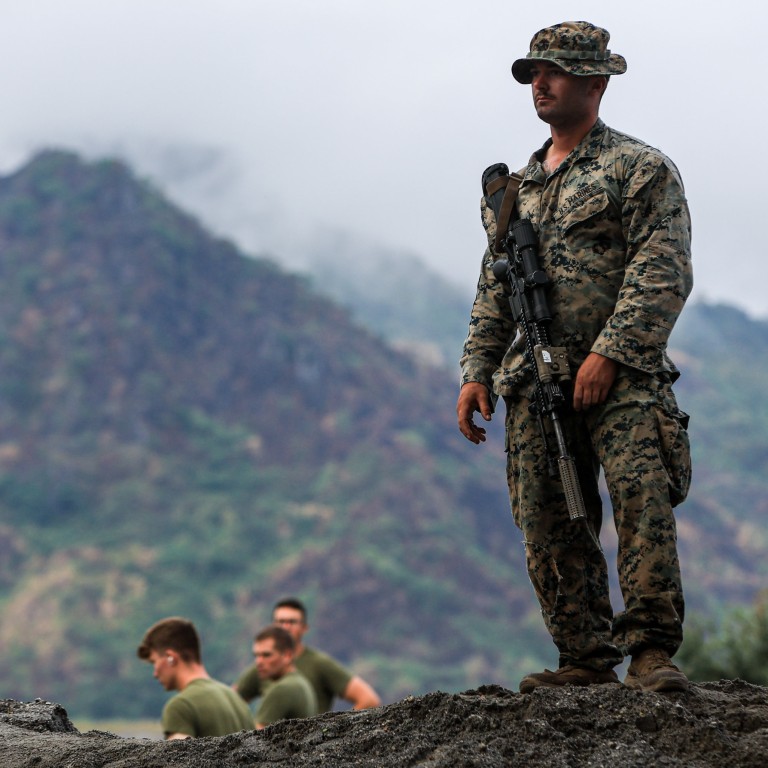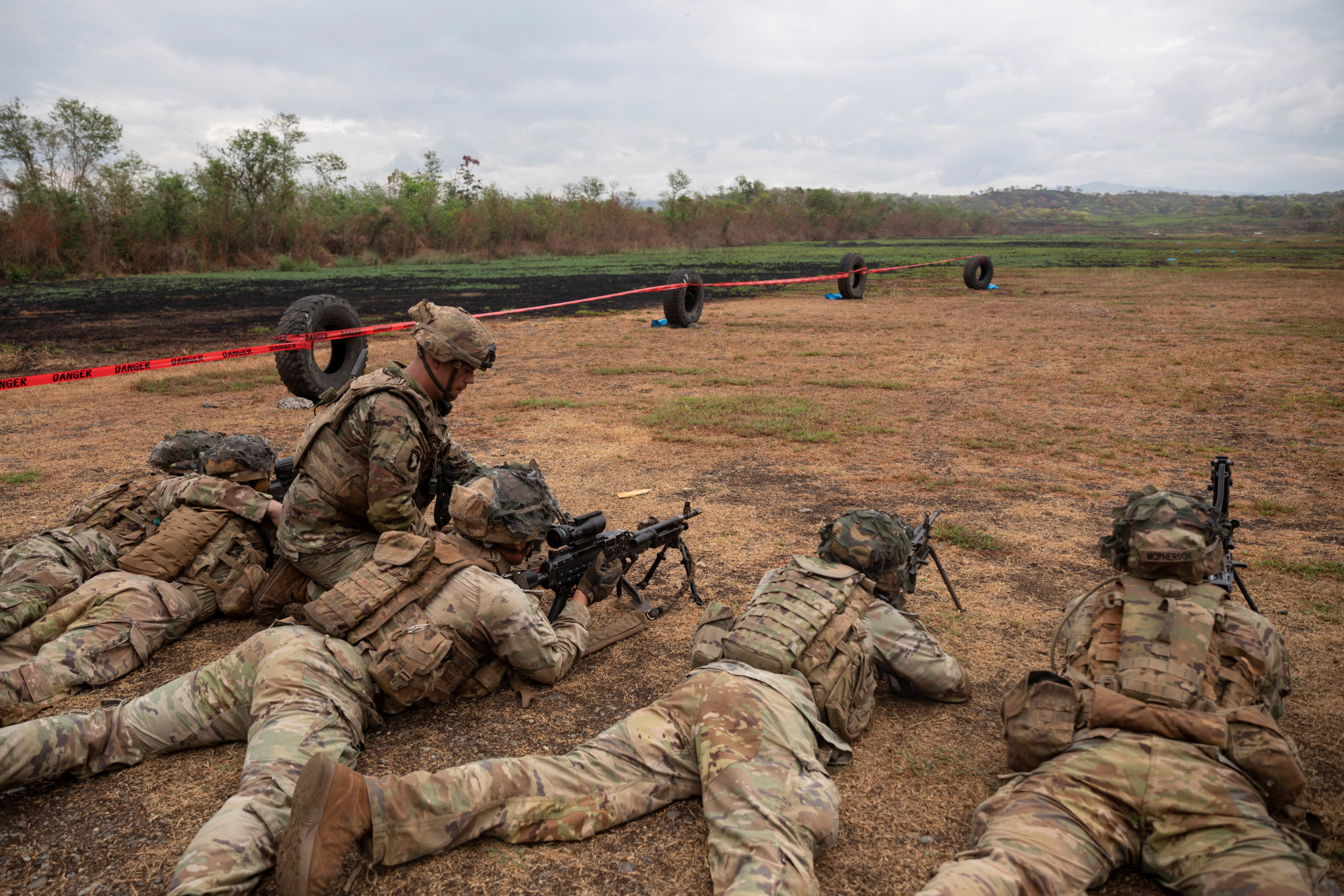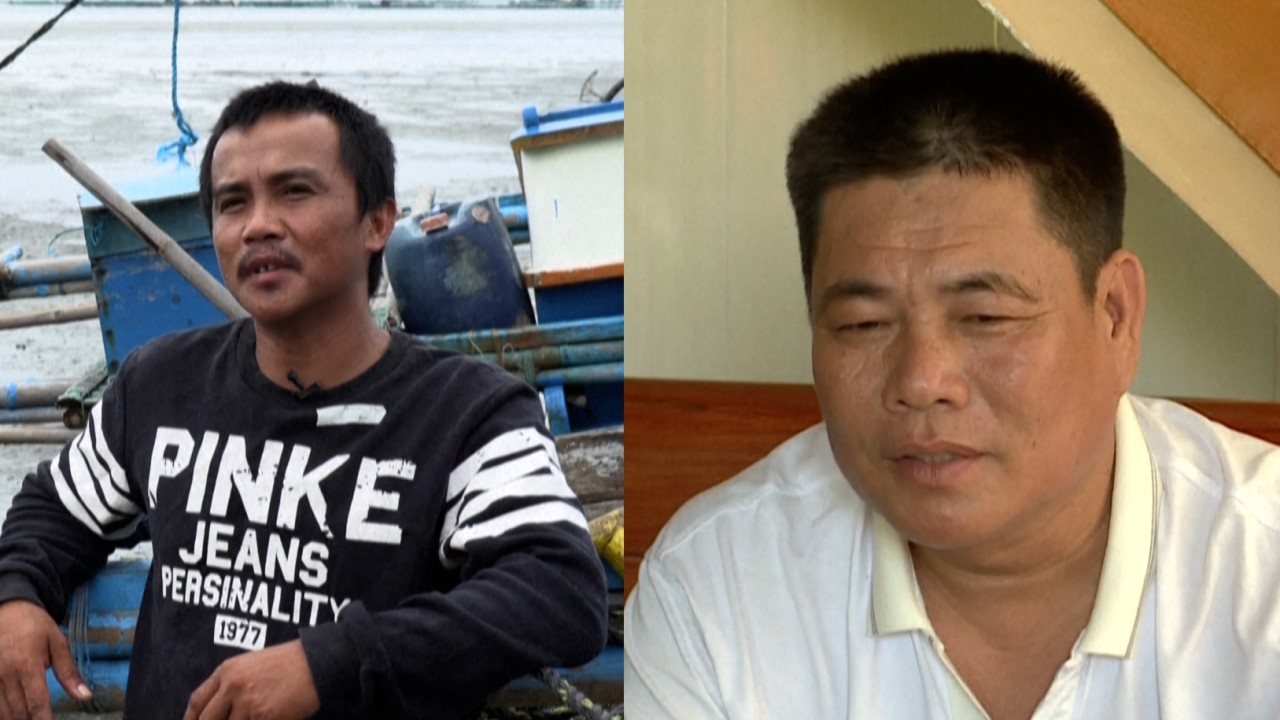
US cannot store arms in Philippines to defend Taiwan, Manila says in ‘friends to all’ policy
- Washington has access to nine sites near the Taiwan Strait and the disputed South China Sea, under a military defence pact with Manila
- China has criticised the deal, accusing the US of taking advantage of the bases to interfere in the situation across the Taiwan Strait to serve its ‘geopolitical goals’
Foreign Affairs Secretary Enrique Manalo said Washington would not be permitted to conduct activities that were not stipulated in the 2014 deal.
“Our view is that EDCA is not aimed at any third country outside its meant-for use for the Philippines,” Manalo told a senate hearing on Wednesday.

He added the government’s key foreign policy was really to be “friends to all” and pledged the security agreement would reflect that position.
Experts warn Philippines should stay neutral in US-China rift or be ‘crushed’
EDCA allows the US to rotate in troops for prolonged stays as well as build and operate facilities on its bases.
Defence chief Carlito Galvez Jnr said the sites were chosen to protect the country’s “vulnerable” north and its maritime interests in the West Philippine Sea.
Unconvinced, Marcos retorted that she and the fishermen in the northern region did not believe they were at risk.
The West Philippine Sea is the term used by Manila to describe the eastern parts of the South China Sea that are within its exclusive economic zone and territorial waters.
She also wanted to know the EDCA’s role in modernising the Philippines ageing military hardware and why the country was depending on “foreigners” for its external protection amid rising regional tensions.
Galvez told Marcos “the modernisation effort of EDCA is to really prepare to defend our country collectively with our allies”.
Manila and Washington maintain the new sites are primarily for responding to humanitarian and climate-related disasters in the Southeast Asian nation.
Philippines assures OFWs in Taiwan of their safety after Chinese envoy’s remark
China has also denounced the Philippines for its defence alliance with the US.
Last week, Huang Xilian said the Philippines’ decision to expand US military access “caused widespread and grave concern among Chinese people”.
Taiwan the ‘most dangerous flashpoint’ in US-China rivalry, Singapore PM says
He advised the Philippines to “unequivocally oppose Taiwan independence” if the Southeast Asian country cared “genuinely” about the 150,000 Filipinos working on the island.
Marcos said that the envoy’s remark must have been “lost in translation”.
China’s embassy in Manila later said the ambassador was misquoted, amid criticisms from lawmakers.
Additional reporting by Bloomberg

